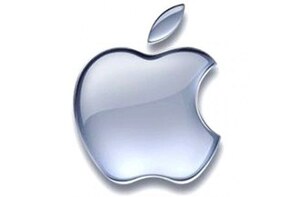 Plaintiffs Amina Salgado and Justina Jong, who have both worked at Apple for more than a decade, highlight in their lawsuit Apple’s hiring practices used to set compensation and performance evaluations, which they claim pushed a wage gap between men and women. According to court documents, before January 2018 Apple asked employees for their compensation history, a practice that “perpetuated historic pay disparities between men and women.” (In 2018 California made it illegal for employers to ask job candidates about their prior pay with the goal of eliminating pay gaps based on sex and race.)
Plaintiffs Amina Salgado and Justina Jong, who have both worked at Apple for more than a decade, highlight in their lawsuit Apple’s hiring practices used to set compensation and performance evaluations, which they claim pushed a wage gap between men and women. According to court documents, before January 2018 Apple asked employees for their compensation history, a practice that “perpetuated historic pay disparities between men and women.” (In 2018 California made it illegal for employers to ask job candidates about their prior pay with the goal of eliminating pay gaps based on sex and race.)Now Apple relies on applicants' pay expectation information to set their starting salaries, which typically had lower pay rates for women compared to men who had similar work. And because most workers provide a figure that is slightly higher than what they earned at their last job, the practice has the same effect of perpetuating wage disparities, reported Reuters.
Jong, a customer and technical training instructor, saw a W-2 left on the office printer by a male colleague. “I noticed that he was being paid almost $10,000 more than me, even though we performed substantially similar work. This revelation made me feel terrible,” Jong said in a statement, and reported by CNN.
Salgado has worked in several positions for Apple since 2012. According to the lawsuit, Salgado complained to the company several times about the wage gap. Apple eventually hired a third-party firm to conduct an investigation, which confirmed that she was paid less. “As a result of the third-party investigation, in late 2023, Apple increased Ms. Salgado’s compensation prospectively, but failed and refused to pay Ms. Salgado back pay for the years during which she was paid less than men performing substantially similar work.”
The women are seeking to represent more than 12,000 current and former female employees in the engineering, marketing and AppleCare divisions. Plaintiffs’ attorney told the San Francisco Chronicle that the wage disparity appeared to be even greater for Salgado. "If those figures are typical, the 12,000 women would be entitled to hundreds of millions of dollars in back pay,” he said.
The lawsuit further alleges that:
- Apple rewards employees who are deemed to have "talent" by paying them more but disproportionately grants that designation to men.
- Its performance evaluations are biased against women. In performance reviews, men at Apple routinely get higher scores on teamwork and leadership, resulting in lower bonuses and pay for the women.
- Plaintiff Jong was forced to work in a hostile work environment next to a co-worker who had sexually harassed her and Apple refused to transfer her to a different team after she lodged a complaint.
An Apple spokesperson told the Wall Street Journal that the company "has achieved and maintained gender pay equity since 2017," and that it now uses an independent third-party expert to evaluate and adjust compensation
Similar Lawsuits and Settlements
The Apple lawsuit is one of several pay equity lawsuits against major corporations, including large tech giants, alleging women and minorities are underpaid. Other gender discrimination lawsuits include Google, which in 2018 agreed to pay $118 million to settle a class action gender discrimination lawsuit, and Oracle agreed to pay $25 million to settle a class action alleging underpaying female employees, reported Reuters. Neither company admitted wrongdoing.
A Hired Inc. survey—reported the Wall Street Journal—found that those seeking jobs in the technology-industry who identified as Black or Hispanic tended to expect and receive lower salary offers than their white and Asian peers over the past year. Racial disparities in technology-industry salaries persist despite promises made by many companies to seek out and elevate diverse talent.
READ MORE CALIFORNIA LABOR LAW LEGAL NEWS
Jong v. Apple, California Superior Court, San Francisco County
This recent class action lawsuit also calls upon Apple employees hired after June 13, 2020, to come forward, join the class, and possibly receive payment through damages. It also calls upon Apple employees hired after June 13, 2020, to come forward, join the class, and possibly receive compensation through damages.
